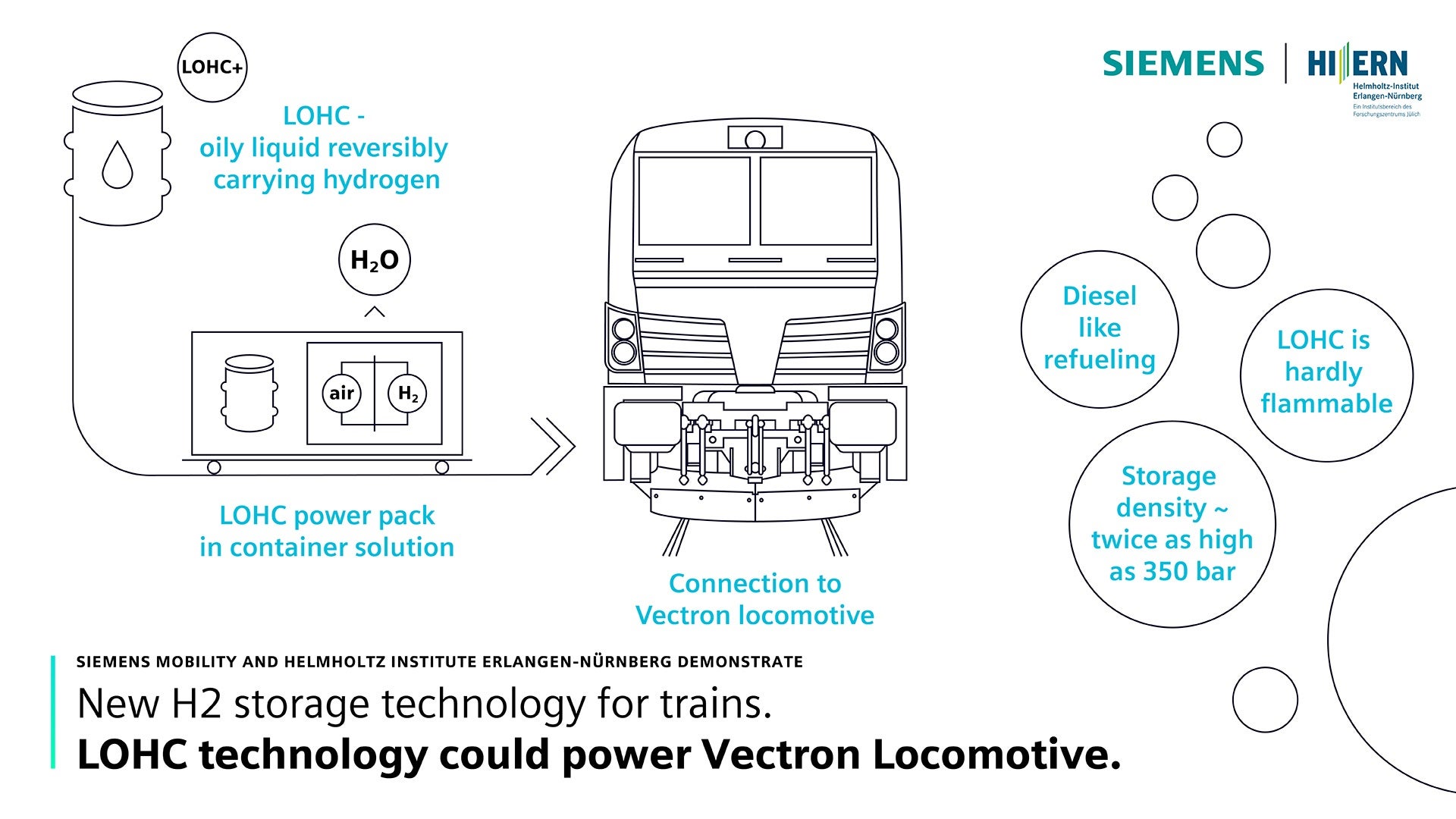
Siemens Mobility has signed a memorandum of understanding (MoU) with Helmholtz Institute Erlangen-Nuremberg for Renewable Energy (HI ERN) to mutually conduct research on the use of liquid organic hydrogen carrier (LOHC) technology in the rail industry.
The joint research will focus on finding solutions for minimising emissions to meet the climate goals.
The LOHC technology allows an organic carrier liquid to absorb hydrogen and release it according to requirements.
This process helps in preventing hydrogen from escaping in a gaseous state and enables secure storage, facilitating its cheap transportation.
LOHC also eliminates the need to store the hydrogen under high pressure or at low temperatures.
This technology is also suited for the on-board production of electrical power in mobile applications such as trains.
Siemens Mobility rolling stock CEO Albrecht Neumann said: “Hydrogen technology is a promising solution for making rail transport climate-neutral. And since sustainability has a very high priority for us at Siemens Mobility, we’re providing a Vectron locomotive for testing the LOHC technology.”
To test the feasibility of the LOHC concept, the company will provide a Vectron mainline locomotive to HI ERN.
HI ERN director Professor Dr Peter Wasserscheid added: “We share with Siemens Mobility the vision of developing a hydrogen technology that uses the existing fuel infrastructure to power large vehicles like trains.”
In the last few years, the company has developed the Mireo Plus H hydrogen-fuelled train, in which hydrogen is stored in gas form and kept under high pressure to maintain the necessary high density.
Last week, Siemens Mobility acquired RailTerm, a Canada-based provider of rail services to railroads and transit agencies, for an undisclosed sum.


